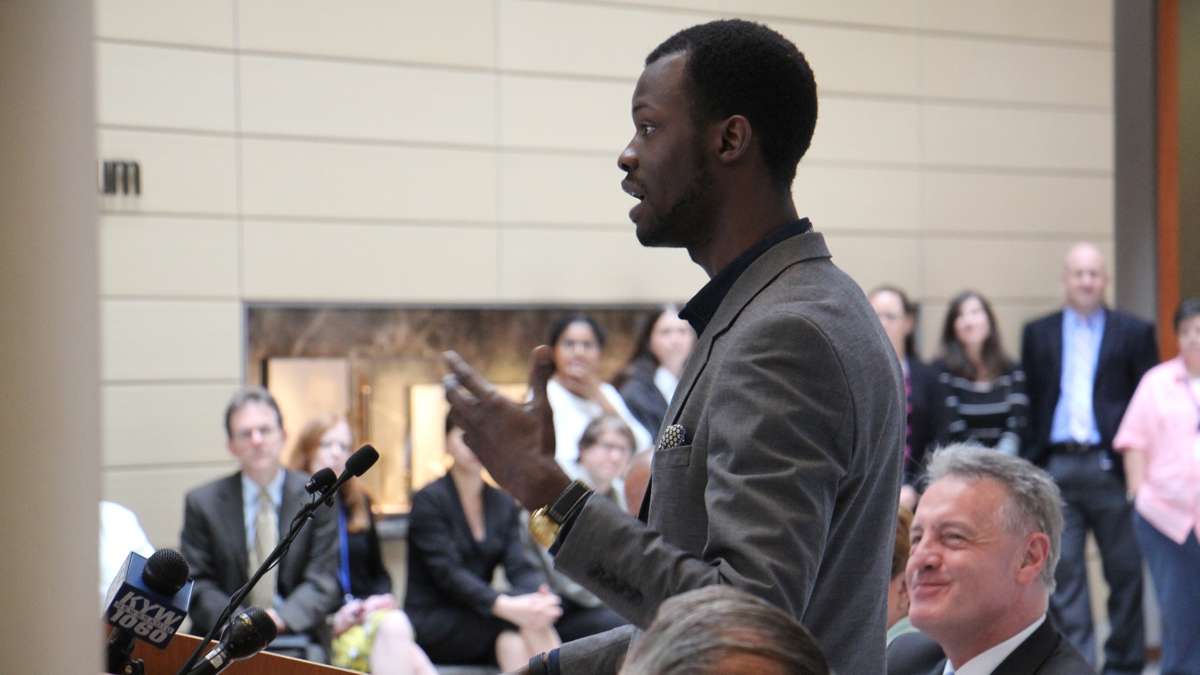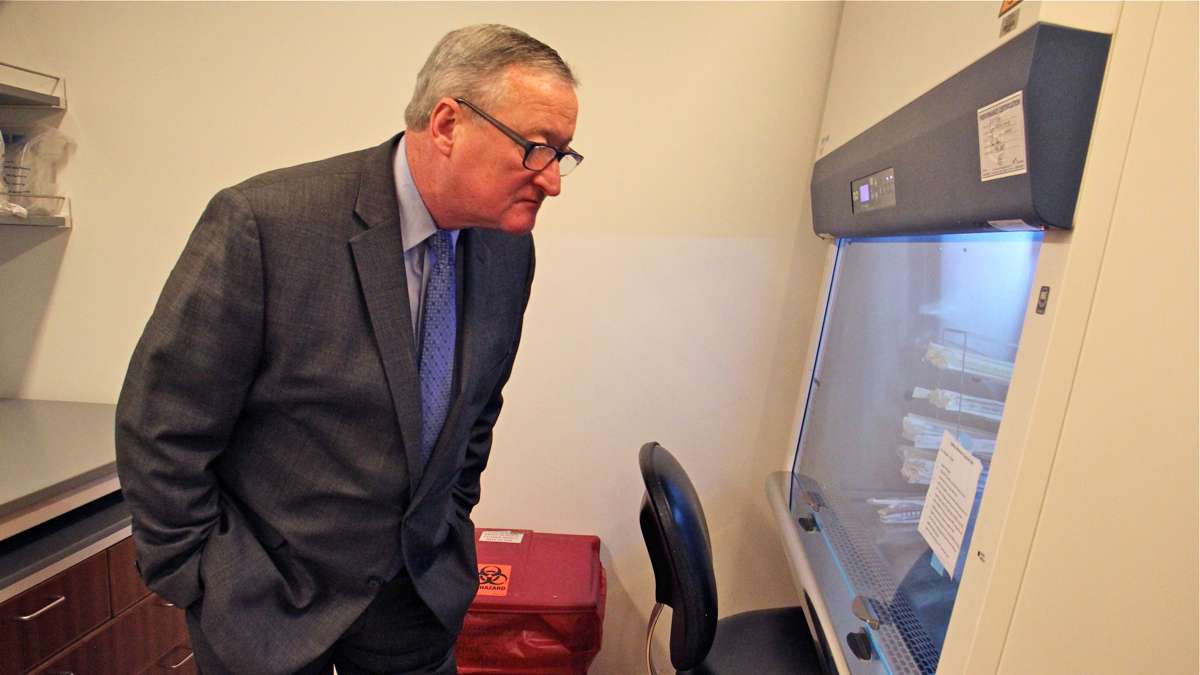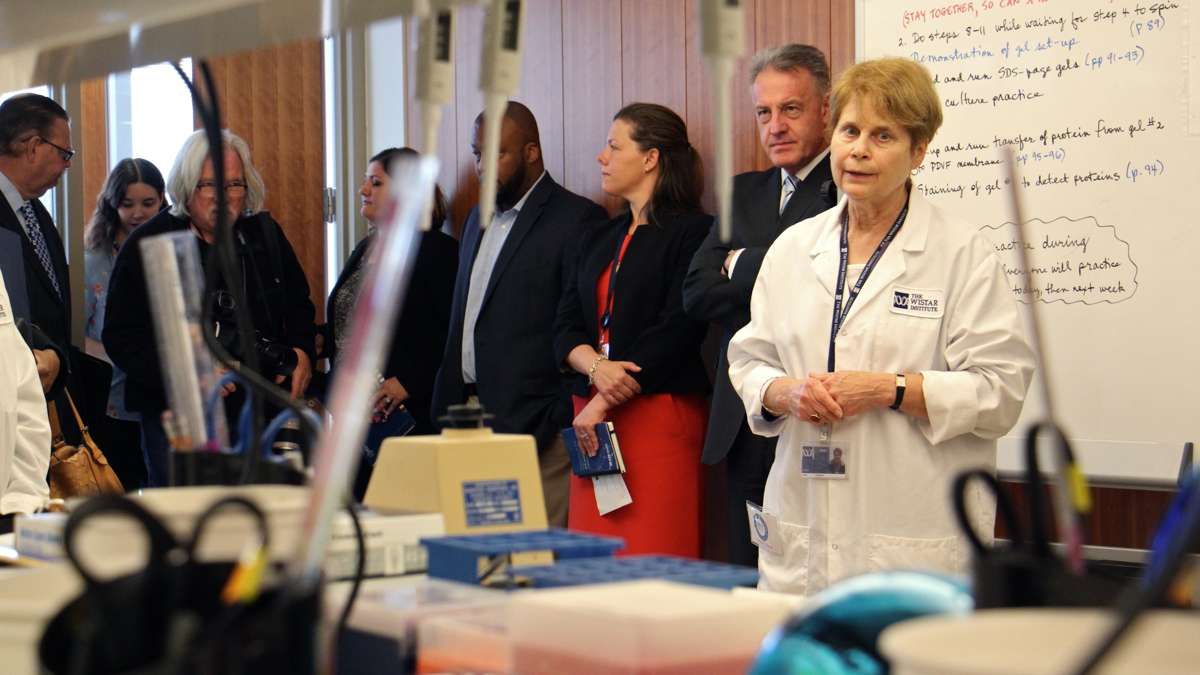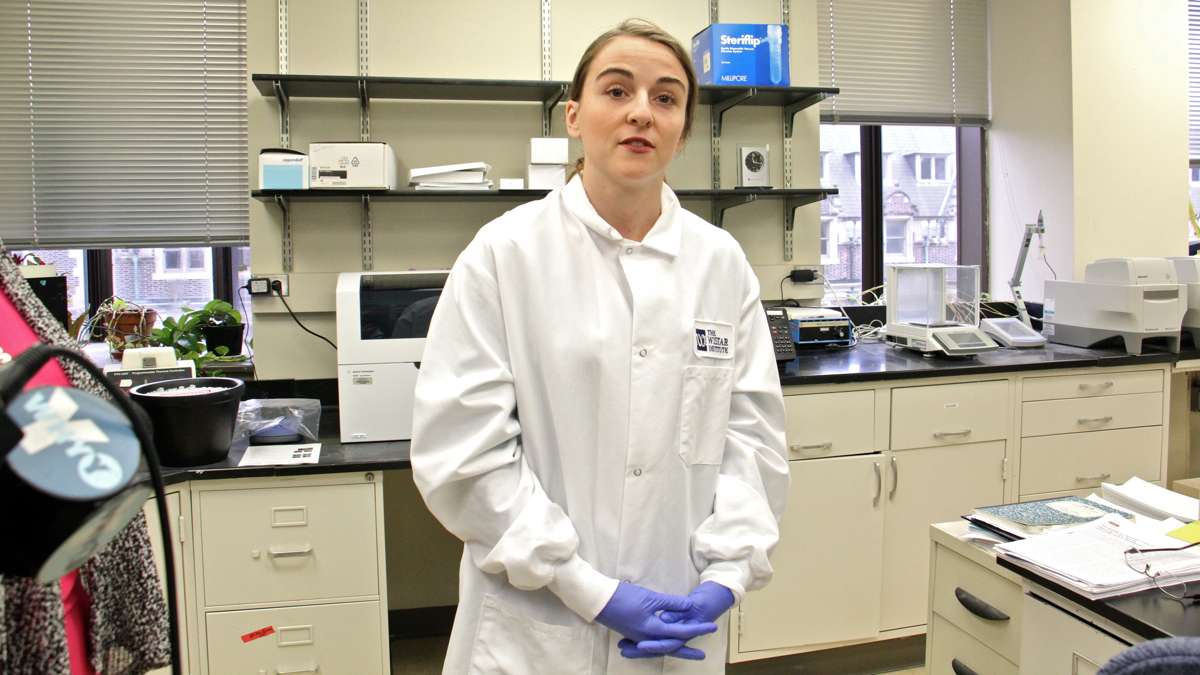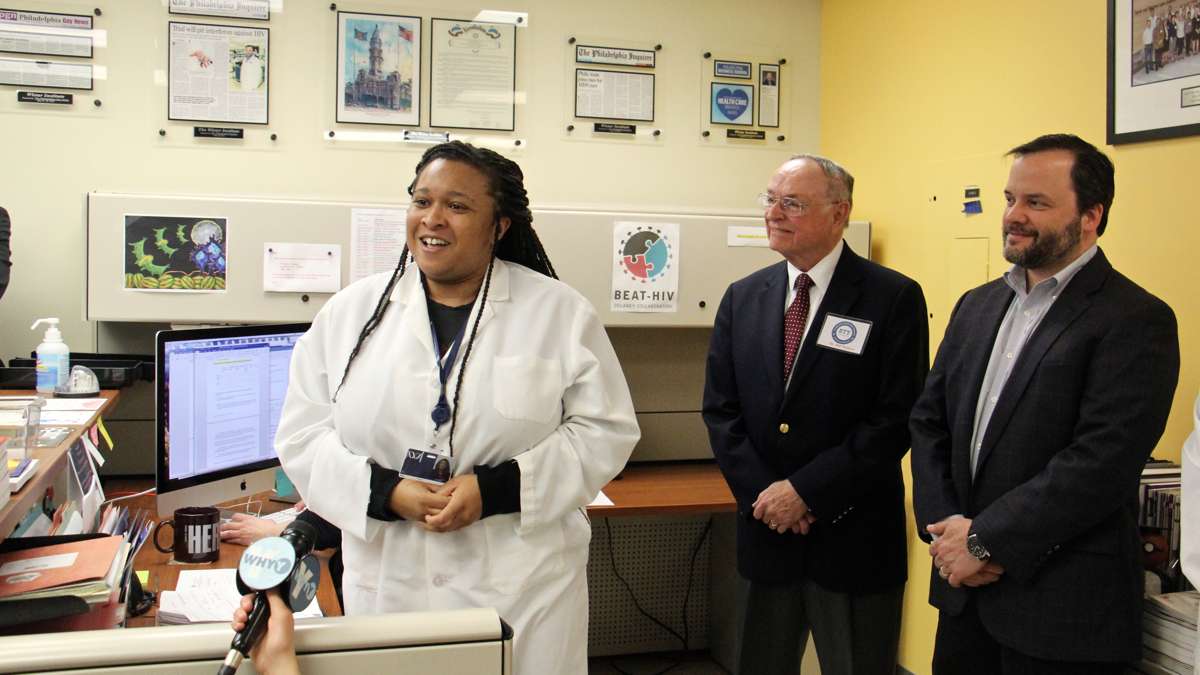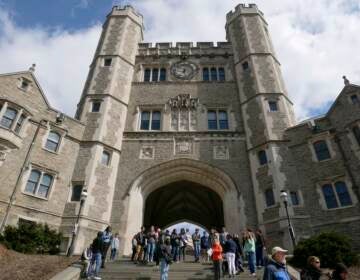Wistar Institute starts apprenticeship program for biomedical lab techs
ListenSplitting baby hamster kidney cells. Performing quality control checks on RNA.
It’s all in a day’s work for a biomedical-research lab technician in one of the fastest-growing fields in Philadelphia and nationwide.
The Philadelphia-based Wistar Institute has launched an apprenticeship program to help the next generation of lab techs learn how to do their jobs while getting paid. It’s part of a state effort to give more workers on-the-job training.
In August, the Pennsylvania Department of Labor and Industry gave the institute $200,000 to develop and pilot a program for biomedical-research lab technicians.
This month, the department approved the program as one of the state’s registered apprenticeship programs.
“We are now a pipeline that can train these people as these positions open up, and we will find matches that will help them go on for their careers,” said Bill Wunner, Wistar’s director of outreach education and technology training.
The first apprentice started working this month; Wunner hopes to train between three and five each year.
The apprenticeship program builds on the institute’s existing biomedical technician-training internship program. Mentors, including post-doctoral fellows at Wistar, train students from the Community College of Philadelphia to work in biomedical labs, researching diseases such as cancer and HIV.
Omotayo Ope wrapped up his biomedical technician-training internship last year, and he now works in a University of Pennsylvania lab researching cancer immunotherapy.
“Having people that trained you, that they trust you to be able to say, ‘He can definitely handle that,’ was definitely a major factor to that,” said Ope, a native of Nigeria who now lives in Philadelphia.
Since 2000, the biomedical technician-training program has attracted a diverse pool of scientists: 57 percent of graduates are underrepresented minorities and 72 percent are women, Wunner said.
Through the new apprenticeship program, those who have completed that training will be matched with an employer and continue their training and education in more specific research areas.
“Apprenticing will allow them to specialize and become more attuned to the job that they’re going to take on,” Wunner said.
Someday, one of them could be Amanda Moran.
While getting her associate’s degree at the Community College of Philadelphia, she discovered a fascination with cells. After finishing Wistar’s biomedical technician-training program, she will begin working on her bachelor’s degree at Bryn Mawr College in the fall.
Moran dreams of getting a doctorate in genetics or molecular biology. At one time, that would have seemed like a far reach for the South Philadelphia resident who became financially independent at 18. Her mother died of breast cancer when Moran was 14, and it was difficult for her father to continue providing for the family, let alone save for college.
“I was a waitress for a very long time, and there’s nothing wrong with that, but I didn’t think there would be opportunities like these,” she said. “I believe Dr. Wunner has done an amazing thing because he’s tapped into that resource of people who started a little bit later, but are serious about what they want to do — and there’s a lot of that in Philadelphia.”
This disclosure: The Wistar Institute supports WHYY.
WHYY is your source for fact-based, in-depth journalism and information. As a nonprofit organization, we rely on financial support from readers like you. Please give today.


